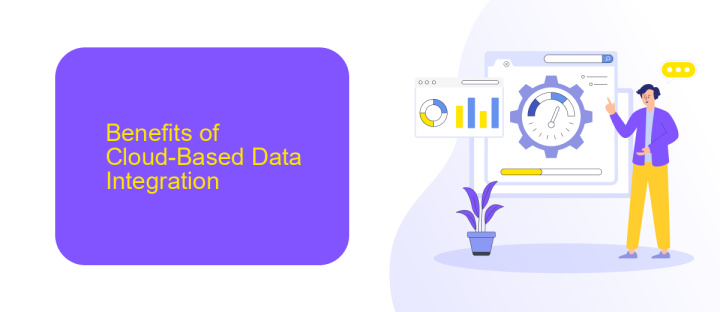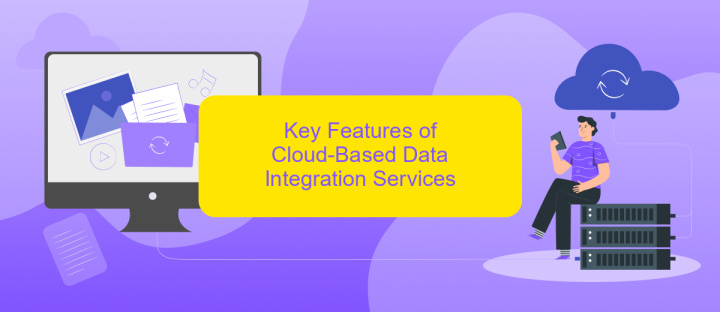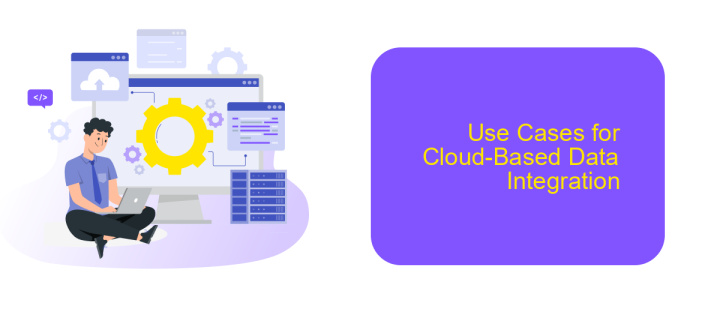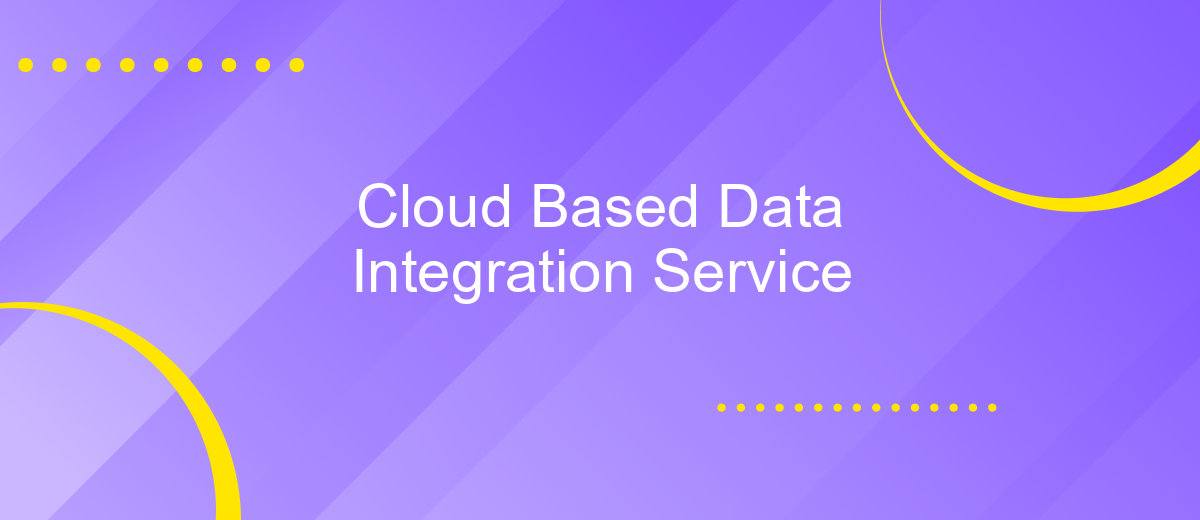Cloud Based Data Integration Service
In today's fast-paced digital landscape, businesses are increasingly turning to cloud-based data integration services to streamline their operations and enhance data accessibility. These services enable seamless connectivity between disparate data sources, providing real-time insights and improving decision-making processes. By leveraging cloud technology, organizations can achieve greater scalability, flexibility, and cost-efficiency, making it an indispensable tool for modern enterprises.
Introduction
Cloud-based data integration services have revolutionized the way businesses handle and process data. These services enable organizations to seamlessly connect disparate data sources, ensuring a unified and consistent flow of information across various platforms. By leveraging cloud technology, businesses can achieve real-time data synchronization, reduce operational costs, and enhance overall efficiency.
- Real-time data synchronization
- Cost-effective solutions
- Enhanced operational efficiency
- Seamless integration across platforms
One notable service in this domain is ApiX-Drive, which simplifies the process of integrating various applications and systems. With ApiX-Drive, users can automate workflows, manage data transfers, and ensure that all systems work in harmony. This not only saves time but also minimizes errors, allowing businesses to focus on their core operations. As cloud-based data integration continues to evolve, services like ApiX-Drive will play a crucial role in shaping the future of data management.
Benefits of Cloud-Based Data Integration

Cloud-based data integration offers numerous benefits, including cost efficiency and scalability. By leveraging cloud services, businesses can avoid the high upfront costs associated with traditional data integration infrastructure. Instead, they pay for what they use, making it a more economical option. Additionally, cloud solutions can easily scale to accommodate growing data volumes and increased integration needs, ensuring that businesses can adapt quickly to changing demands without significant investments in new hardware or software.
Another significant advantage is the ease of setup and maintenance. Services like ApiX-Drive provide user-friendly interfaces and automated workflows, simplifying the integration process. This allows businesses to connect various applications and data sources without requiring extensive technical expertise. Furthermore, cloud-based solutions often include robust security measures and regular updates, ensuring that data remains protected and the integration tools stay current with the latest technological advancements. This combination of simplicity, security, and adaptability makes cloud-based data integration an attractive option for businesses of all sizes.
Key Features of Cloud-Based Data Integration Services

Cloud-based data integration services offer a range of features that streamline the process of combining data from various sources into a unified view. These services are essential for businesses looking to leverage data for strategic decision-making and operational efficiency.
- Scalability: Cloud-based solutions can easily scale to accommodate growing data volumes, ensuring seamless integration as your business expands.
- Real-time Data Processing: These services provide real-time data synchronization, allowing businesses to access up-to-date information instantly.
- Security: Robust security measures, including encryption and authentication, protect sensitive data during transmission and storage.
- Cost-Efficiency: Pay-as-you-go pricing models make it cost-effective, eliminating the need for significant upfront investments in hardware and software.
- Ease of Use: User-friendly interfaces and automation tools, like ApiX-Drive, simplify the setup and management of data integrations, even for non-technical users.
By leveraging these key features, businesses can enhance their data management capabilities, improve decision-making processes, and ultimately drive growth and innovation. Cloud-based data integration services are indispensable tools in the modern data-driven landscape.
Use Cases for Cloud-Based Data Integration

Cloud-based data integration services offer robust solutions for businesses looking to streamline their data processes. These services enable seamless data flow between various applications and systems, ensuring that data is consistent and up-to-date across all platforms. This is particularly beneficial for organizations that rely on multiple software tools for their operations.
One of the primary use cases for cloud-based data integration is in real-time data synchronization. By integrating different data sources, businesses can ensure that their data is always current, which is crucial for making informed decisions. Additionally, cloud-based solutions like ApiX-Drive simplify the integration process, allowing users to connect various applications without needing extensive technical expertise.
- Automating data workflows between CRM and marketing platforms
- Synchronizing inventory data across e-commerce and ERP systems
- Integrating financial data from accounting software to business intelligence tools
- Connecting customer support systems with project management tools
Another significant use case is data migration. When businesses upgrade or switch systems, cloud-based integration services facilitate smooth data transfer, minimizing downtime and data loss. Services like ApiX-Drive offer pre-built connectors and user-friendly interfaces, making the transition process efficient and hassle-free. These capabilities make cloud-based data integration an essential tool for modern businesses.


Conclusion
In conclusion, the adoption of a cloud-based data integration service offers numerous advantages, including scalability, flexibility, and cost-efficiency. By leveraging such services, organizations can streamline their data management processes, ensuring seamless data flow between disparate systems. This not only enhances operational efficiency but also enables better decision-making through real-time data access and analytics.
ApiX-Drive exemplifies the potential of cloud-based integration services, providing a user-friendly platform for configuring integrations without the need for extensive technical expertise. Its ability to connect various applications and automate workflows reduces manual intervention, thereby minimizing errors and saving valuable time. As businesses continue to evolve in the digital age, utilizing robust data integration solutions like ApiX-Drive will be crucial for maintaining a competitive edge and driving innovation.
FAQ
What is a Cloud Based Data Integration Service?
How does a Cloud Based Data Integration Service work?
What are the benefits of using a Cloud Based Data Integration Service?
Can I integrate multiple applications with a Cloud Based Data Integration Service?
Is it difficult to set up a Cloud Based Data Integration Service?
Do you want to achieve your goals in business, career and life faster and better? Do it with ApiX-Drive – a tool that will remove a significant part of the routine from workflows and free up additional time to achieve your goals. Test the capabilities of Apix-Drive for free – see for yourself the effectiveness of the tool.

